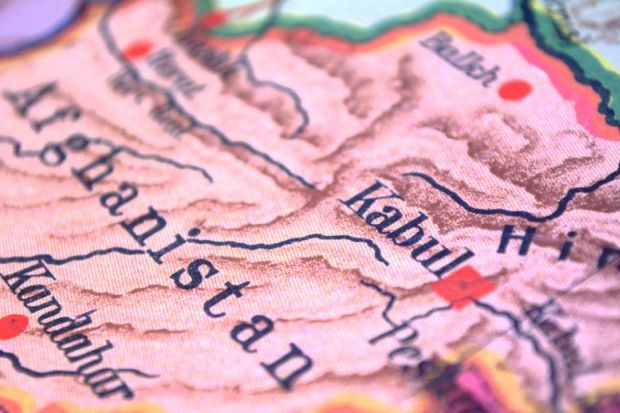Universities with established links to institutions in Afghanistan should try to “stand by them for the benefit of the Afghan people” as the country faces a struggle to avoid a major humanitarian crisis, according to a leading scholar on conflict resolution.
Sultan Barakat, founding director of the Center for Conflict and Humanitarian Studies in Qatar, said maintaining “continuity” in research and educational networks would be extremely tough owing to the political and economic challenges now facing the nation under Taliban control.
However, education, especially as a potential way to broaden the Taliban’s outlook, may be the only way to find a peaceful way forward, said Professor Barakat, who also holds an honorary professorship at the University of York, where he led the institution’s Post-war Reconstruction and Development Unit between 1993 and 2016.
Data from Elsevier’s Scopus database of indexed research suggests that scholarly publications involving academics in Afghanistan had just begun to substantially pick up in the past five years, after years of slow growth.
The number of papers published in 2020, 324, was at an extremely low level and three-quarters involved international collaboration, yet that number had quadrupled since 2015 and appeared to be on a sustained rise.
Professor Barakat, whose centre in Qatar has hosted discussions on achieving peace in Afghanistan in recent months, including an event addressed by the now-deposed president Ashraf Ghani in June, said his view was that the Taliban leadership were in principle “much more open to education” than when they were in power in the late 1990s.
“But the limitation is in their capacity to being able to deliver on all these promises” given the lack of education among their rank and file, the brain drain from the country and what their actual attitude to women’s education will be, he added.
“It is not only that they [the Taliban] don’t have qualified people among their ranks, the few qualified in the country have been evacuated. Long term, that is going to be very negative,” Professor Barakat continued.
For Afghan universities, there is concern about their ability to continue to function, “in terms of continuity and whether they would be able to maintain those research and education links that have developed over the years. The ones with the West were particularly expensive…so they had to be subsidised” from overseas, he said.
Foreign universities that established links with Afghan universities “should really stand by them for the benefit of the Afghan people rather than look to move them elsewhere”, continued Professor Barakat.
后记
Print headline: Keep links with Afghanistan ‘for good of people’, says scholar




